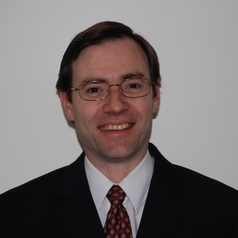
David Grayden
Professor of Electrical & Electronic Engineering, University of Melbourne
Professor David Grayden is Deputy Head (Academic) of the Department of Electrical and Electronic Engineering at The University of Melbourne.
His main research interests are in understanding how the brain processes information and how best to present information to the brain using medical bionics, such as the bionic ear and bionic eye. He is also conducting research in epileptic seizure prediction and electrical stimulation to prevent or stop epileptic seizures.
Less ![]()
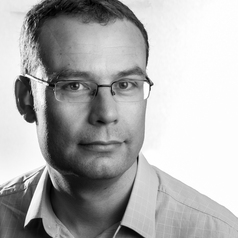
David Grummitt
Staff Tutor in History, The Open University
I am military historian who has published extensively on warfare in the late Middle Ages (particularly on the Wars of the Roses) but also on modern armoured warfare. I am the author of books on both the M1 Abrams and the Leopard 2 tanks.
Less ![]()

David Gurnham
Professor of Law, University of Southampton
After completing my Law (LLB) degree at Lancaster University in 1999, I completed my doctorate at Warwick Law School in criminal law and criminal justice. I have since lectured at universities of Reading, Manchester and Southampton, where I am now a Professor Criminal Law and Interdisciplinary Legal Studies.
Less ![]()
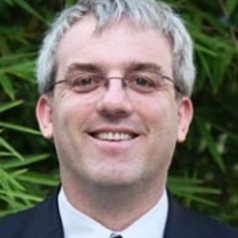
David Hansen
CEO, Australian e-Health Research Centre, CSIRO
David Hansen is CEO of the Australian e-Health Research Centre, a joint venture between the Commonwealth Scientific and Industrial Research Organisation (CSIRO) and Queensland Health. David leads a research program of over 65 scientists and engineers developing information and communication technologies. The e-Health research program tackles the challenges of the healthcare system across Data, Diagnosis and Services.
Prior to joining CSIRO, David worked for LION bioscience Ltd in the UK, developing genomic data and tool integration software.
David is also the Chair of the Board of the Health Informatics Society of Australia (HISA) and played a key role in initiatives such as the introduction of the Certified Health Informatician Australia (CHIA) program and the annual Health Informatics Conference (HIC) and Big Data conferences.
David is passionate about the role of information and communication technologies in health care and the role of Health Informatics professionals in developing a safe, high quality efficient and sustainable healthcare system in Australia.
Less ![]()
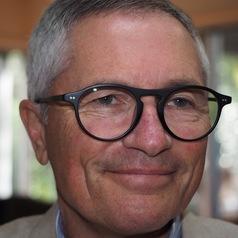
David Hayward
Emeritus Professor of Public Policy, RMIT University
David is Emeritus Professor of Public Policy and the Social Economy at RMIT University
Less ![]()

David Hekman
Associate Professor of Organizational Leadership, University of Colorado Boulder
David Hekman earned his Ph.D at the University of Washington's Foster School of Business and is an Associate Professor of Organizational Leadership and Information Analytics at the University of Colorado's Leeds School of Business. He is focused on improving organizational health by examining sources of professional workers’ (e.g. doctors, lawyers, and professors) motivation, sources and outcomes of virtuous leadership, and remedies for pervasive workplace racial and gender biases. His research has been published in a number of leading journals including Academy of Management Journal, Organization Science, Journal of Applied Psychology, and Journal of Business Ethics, and has been featured in a number of media outlets including the New York Times, the Wall Street Journal, the Washington Post, the Chicago Tribune, and National Public Radio.
Less ![]()

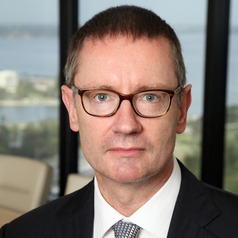
David Hodgkinson
I am a partner with aviation and aerospace law firm HodgkinsonJohnston. I am also an associate professor in the Law School at the University of Western Australia, and executive director of EcoCarbon (a UNFCCC-accredited NGO) Displacement.
My areas of research are aviation law and climate change.
In terms of aviation, I was formerly Director of Legal Services at IATA (the organisation of the world's airlines) in Montreal, and edited the book 'Essential Documents on International Air Carrier Liability.'
In terms of climate change, I led an international project team which drafted the Peninsula Principles on Climate Displacement. I am also the coauthor of the leading text on climate change law in Australia, 'Global Climate Change: Australian Law and Policy' (LexisNexis), and was the general editor of the looseleaf service, also published by LexisNexis, 'Climate Change Law and Policy in Australia.'
Less ![]()
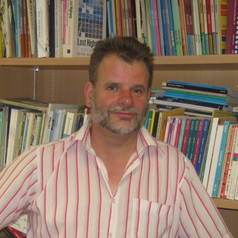
David Holmes
Senior Lecturer, Communications and Media Studies, Monash University
David is a political analyst, social theorist and media scholar. He completed a major in Media Studies at Swinburne University, a BA (Hons) in Politics and Social Theory and a PhD in Social Theory (Department of the History and Philosophy of Science) from the University of Melbourne, where he was awarded the Dwight prize for political science.
He is author or editor of four books in the sociology of communications including: Virtual Politics: Identity and Community in Cyberspace (Sage 1997) and Virtual Globalisation: Virtual Spaces, Tourist Spaces (Routledge 2001), Communication Theory: Media, Technology and Society (Sage 2005) and a Key Concepts in Media and Communications (Sage 2011) co-authored with Paul Jones (UNSW) Over eleven years, he has also co-authored four editions of an analysis of Australian society: Australian sociology (2003, 2007 and 2011, 2014) with Roberta Julian and Katie Hughes. For the last two editions he has written a new chapter on the sociology of climate change.
Less ![]()

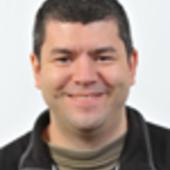
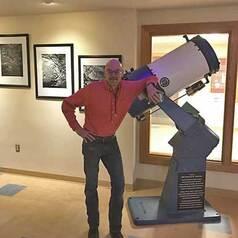
David Hurd
Professor of Geosciences, Pennsylvania Western University
With his trademark high energy, vast academic knowledge and inquiry-based pedagogy, Dr. David Hurd has gained a reputation as one of the region’s most engaging professors. A two-time recipient of the Educator of the Year Award at PennWest Edinboro, Dr. Hurd is consistently nominated for a multitude of awards and was awarded the Emmons Award through the Astronomical Society of the Pacific. This is a highly prestigious award recognizing and celebrating outstanding achievement in the teaching of college-level introductory astronomy for non-science majors. Hurd also delivered the keynote address to the first and only national conference of planetarians in St. Louis in 2017.
In addition to his invaluable contributions in the classroom, Dr. Hurd manages the PennWest Edinboro Planetarium and provides the local community with interactive and engaging live and online planetarium programs. Every year, thousands of K-12 and general public participants visit the planetarium for educational programming. The planetarium has received national recognition for Dr. Hurd’s inclusion of all learners in STEM objectives.
Considered a pioneer in the field, he has dedicated the last 20 years to producing and implementing tactile astronomy materials for the blind and has facilitated workshops on teaching astronomy to the visually impaired.
Less ![]()
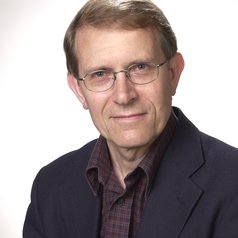
David Hutchison
David Hutchison has been leading a research group in computer networks for 30 years, focusing largely on Quality of Service (QoS) and more recently on resilient systems. He has completed many projects, mostly with international and industry collaborations, and has written many papers in his areas of interest. He has served on the key conference technical program committees in his field and on several journal and book publishing editorial boards.
Less ![]()
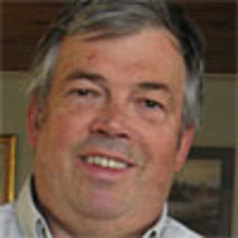
David Ingles
Dr David Ingles has a BEc (Sydney), MEc Sydney and PhD (Public Policy, ANU). He has worked in the Commonwealth public service and also for the Queensland Government in research and policy advisory roles, and was a policy adviser to Ministers in the Hawke Government. He has recently been attached to the Australia institute. He specialises in tax and social security policy.
Less ![]()
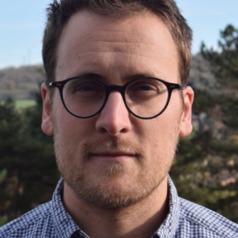
David Jackman
Departmental Lecturer in Development Studies, University of Oxford
David’s research focuses on the political economy of crime and violence in South Asia. He works particularly in Bangladesh and West Bengal, and has published on topics ranging from labour politics, syndicates and elections to beggar leaders and destitution.
He is the author of Syndicates and Societies: Criminal Politics in Dhaka (Cambridge University Press) and co-editor of Controlling the Capital: Political Dominance in the Urbanizing World (Oxford University World). He is currently writing a political history of the Sundarbans (the world’s largest mangrove forest) focusing on piracy.
Less ![]()
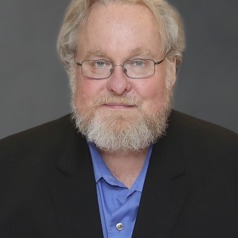
David Jackson
Professor of Political Science, Bowling Green State University
David J. Jackson is professor of political science at Bowling Green State University. His research interests include U.S. political behavior and the interactive relationship between politics and culture. He is the author of Entertainment and Politics: The Influence of Pop Culture on Young Adult Political Socialization, a second and revised edition of which was published in 2009. He has published articles in such journals as Political Research Quarterly, American Politics Research, Polish American Studies, American Review of Canadian Studies, and the International Journal of Press/Politics. In 2007-2008 he was a Fulbright Fellow at the University of Łódź. His book Classrooms and Barrooms: An American in Poland, was published in 2008.
Less ![]()
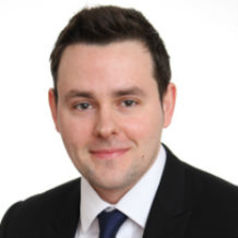
David James Robertson
My PhD research was supervised by Professor Nilli Lavie at UCL. I worked on the development of novel applications of perceptual load theory.
I currently work at the University of York FaceVar lab, headed by Professor Mike Burton. Our research focuses on improving our understanding of human and machine face recognition.
Less ![]()
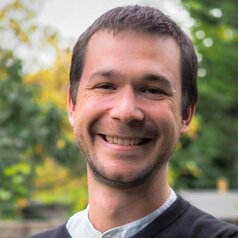
David Jeffery-Schwikkard
PhD Candidate (Theology and Religious Studies), King's College London
I research religion and political parties. My dissertation explores how the African National Congress (ANC) navigates a secular state with a religious electorate in South Africa. I am currently a PhD candidate at King's College London, and a visiting researcher at Walter Sisulu University.
Less ![]()
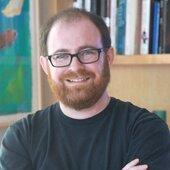
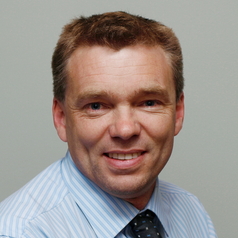
David Jones
Dr David Jones has a PhD in Meteorology/Climate, A BSc majoring in meteorology, chemisty and mathematics, and a Graduate Dipolma in Forecasting.
David Jones received his PhD from the Earth of School Science at Melbourne University. His research has covered numerous aspects of climate including seasonal prediction, spatial analysis, climate change monitoring and climate change detection.
Dr David Jones is Manager of Climate Monitoring and Prediction at the Australian Bureau of Meteorology. The Climate Monitoring and Prediction Sections of the Bureau are responsible for monitoring Australian climate variability and change, and the prediction of Australian climate on intraseasonal (a few weeks) to interannual timescales.
The Bureau presently operates under the authority of the Meteorology Act 1955, which requires it to report on the state of the atmosphere and oceans in support of Australia's social, economic, cultural and environmental goals. David Jones does not consult to, own shares in or receive funding from any company or organisation that would benefit from this article, and has no relevant affiliations.
Less ![]()
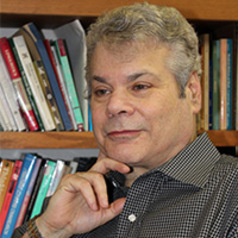
David Kaufer
Professor Emeritus of English, Carnegie Mellon University
David Kaufer has published five books, four textbooks, and over 100 refereed articles on text analysis, rhetorical analysis, writing theory, and writing and technology. His research focuses on digital approaches to text analysis and collaboration. He has built large-scale digital dictionaries (the DocuScope default Libraries) to analyze and assess writing that have been used by ETS, RAND, The Folger Library, and the Stanford Literary Lab.
Researchers from the English department and the Computer Visualization Lab of the University of Wisconsin received a Mellon grant specifically to make it possible for textual researchers worldwide to run his dictionaries in their various research projects.With Ananda Gunawardena of the Princeton Computer Science department, Kaufer also co-invented Classroom Salon, a web-based application used to support textual annotation and collaboration in the humanities and STEM fields. That project currently has a user-base of 20,000 and has been supported by the Heinz Endowment, NSF, the Gates Foundation and Google.
In addition to being a descriptive expert in the rhetorical patterns of English writing, Kaufer is an expert in the normative principles underlying effective written communication and has written three textbooks on the subject.
Less ![]()
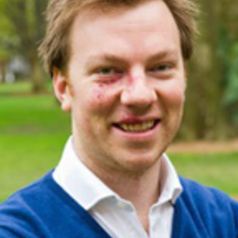
David Keith
David R. Keith is an Assistant Professor of System Dynamics at the MIT Sloan School of Management.
David uses simulation modelling to examine the diffusion of new technologies in the automotive industry. His research examines corporate strategy and public policy issues including spatial patterns of technology adoption, supply constraints in production, competition between existing platforms and emerging alternative fuel vehicles, and the impact of new technologies on energy consumption and environmental impacts.
David has received several awards for his research, including a Fulbright scholarship, an Alcoa Foundation Fellowship from the American-Australian Association, a Martin Family Sustainability Fellowship from the MIT Energy Initiative, and the Dana Meadows award recognizing the best student paper at the International System Dynamics Conference. David previously worked for Holden, the Australian subsidiary of General Motors, and URS Corporation, a global engineering and environmental consultancy.
David holds BEng (Hons.), BCom, and MEnv degrees from the University of Melbourne (Australia) and a PhD from the MIT Engineering Systems Division.
Less ![]()
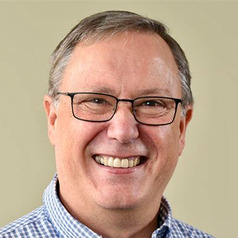
David Kitchen
Associate Professor of Geology, University of Richmond
David Kitchen earned a B.Sc. and Ph.D. in Geology from Queens University Belfast. After working for two years as a petroleum geologist in the North Sea, he started teaching Earth Sciences as lecturer at the Ulster Polytechnic and later as a member of the faculty at the University of Ulster
Following ten years of active teaching, research and research supervision, Dr. Kitchen was appointed to the position of European Officer for the University with a major focus on international research and development. During this time, he worked closely with the European Commission in Brussels, with particular focus on research policy, regional development, and the EU Framework research programs. He was directly involved with project development and funding for higher education and research initiatives in both East and West Europe.
Dr. Kitchen was then appointed as director of international programs at the University. He led faculty research collaboration with Universities across the European Union, USA, Canada and Mexico. While focused on research administration during this period of his career, Dr. Kitchen continued to supervise research students and taught geology as adjunct professor with the UK's Open University.
In 2001 Dr. Kitchen moved to the United States to work at the University of Richmond. As Associate Dean in the School of Professional & Continuing Studies, he directs the university’s summer undergraduate program and leads a team that delivers high-value professional education programs and courses to the community in Central Virginia.
As an Associate Professor, Dr. Kitchen teaches 2-3 courses a year on natural hazards and climate change. He is an active member of the environmental studies course team and has served as representative to the Council of Environmental Deans and Directors, Environmental Fellow for the Associated Colleges of the South, as a College Fellow, and as coordinator of university environmental programs.
His interests have long focused on natural hazards and climate change. He is currently writing a textbook on natural hazards and has written a textbook on global climate change first published internationally by Prentice in 2013, then Routledge in 2016 and now a second edition for Routledge in 2023.
His interests have long focused on volcanoes and volcanic processes, especially related to the British Tertiary Volcanic Province. Dr. Kitchen considers himself privileged to have visited and studied many active and ancient volcanoes across the world and is currently writing a textbook on natural hazards. His geological interests extend to ancient climate and climate change, and he has written a textbook on Global Climate published internationally by Prentice in 2013, Routledge in 2016 and a second edition for Routledge in 2022.
Less ![]()
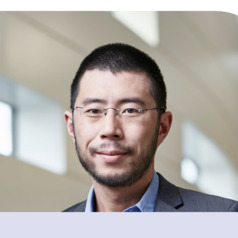
David Kok
Radiation Oncologist at Peter Mac; Course Coordinator, Masters of Cancer Sciences, The University of Melbourne
Dr David Kok is a Radiation Oncologist and Medical Educator dually employed by the Peter MacCallum Cancer Centre and The University of Melbourne.
He holds numerous senior roles, including being Peter Mac's Associate Director of Radiation Oncology (Education) and Director of Peter Mac's Monash Moorabbin campus.
Clinically, he treats all tumour subtypes but has a particular interest in skin, urological and neurological malignancies. He has expertise in the use of Stereotactic Radiosurgery, VMAT and Intensity Modulated radiotherapy to achieve the best possible outcomes for his patients.
David is also an award winning medical educator. He completed an education degree alongside his medical degree and also completed a medical education fellowship before taking up his current position as the inaugural Course Convenor of the University of Melbourne's Master of Cancer Science Degree - a program delivered jointly by the University of Melbourne and the Victorian Comprehensive Cancer Centre. Delivered online using a variety of innovative methods including interactive case scenarios, fully animated videos and virtual reality simulations, it has been recognised as a sector-leading degree with numerous international accolades and is one of the University's fastest growing degrees. In addition he has led the design of two short courses and three microcertifications for the University.
David sits on a range of national and international educational committees. This includes being the Chair of the VCCC Alliance's Cancer Education and Training Advisory Committee - the overarching educational committee that sits across the Alliance's 10 hospital's and academic institutions - and Chief of Training and Assessment for the Royal Australian and New Zealand College of Radiology's Faculty of Radiation Oncology. He is also an Adjunct Associate Professor in the Monash University Department of Medical Imaging and Radiation Sciences. He has published and lectured widely relating to best practice in tertiary and postgraduate medical education.
Less ![]()
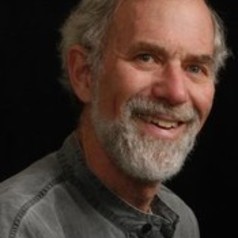
David Laitin
James T. Watkins IV and Elise V. Watkins Professor of Political Science, Stanford University
David D Laitin is the James T. Watkins IV and Elise V. Watkins Professor of Political Science at Stanford University. His specialty is comparative politics. In that field he conducts research on political culture, ethnic conflict, and civil war. His field expertise spans Somalia, Nigeria, Catalonia, Estonia and France.
Less ![]()
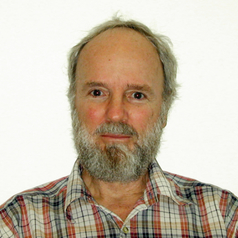
David Lamb
Since I retired from teaching at the University of Queensland I have continued collaborating with academic colleagues on forest restoration. I have undertaken a series of consultancies with the World Bank in China (involving forest restoration in degraded land) and with the Australian aid program in Vietnam (involving adaptions to climate change in the Mekong Delta).
In recent years I have also given lectures to post graduate students (University of Melbourne, Yale University, Swedish Agricultural University) and participated in reforestation training programs (China, Thailand, Malaysia).
Less ![]()
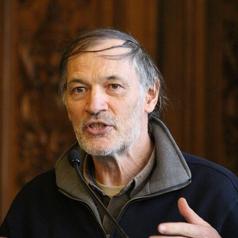
David Le Breton
Professeur de sociologie et d'anthropologie, Université de Strasbourg
Professeur de sociologie à l’université de Strasbourg, membre de l’Institut Universitaire de France et de l’Institut des Études Avancées de l’université de Strasbourg (USIAS). Auteur notamment de Sourire. Anthropologie de l'énigmatique (Métailié), Marcher la vie. Un art tranquille du bonheur (Métailié), Marcher. Éloge des chemins et de la lenteur (Métailié), En roue libre. Une anthropologie sentimentale du vélo (Terre Urbaine), Anthropologie du corps et modernité (PUF), Anthropologie des émotions (Payot), Du silence (Métailié), Conduites à risque. Des jeux de mort au jeu de vivre (PUF, poche), En souffrance. Adolescence et entrée dans la vie (Métailié).
Less ![]()
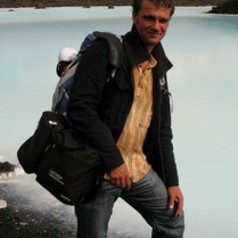
David Lesbarrères
Adjunct Professor, Department of Biology, Laurentian University
In the broadest sense, I am interested in theoretical and applied questions about the evolution and ecology of amphibian species and communities. For the past 6 years my research program centred on population genetics in human dominated landscapes, focussing on gene flow interruption and its consequences for amphibian populations. Part of this research also investigated the fitness consequences of phenotypic and genetic variation. Amphibian populations are facing various threats in Northern Ontario such as habitat removal, connectivity disruption and EIDs and my research ultimately integrate all these aspects to understand the declines of populations.
In general, my work integrates intense field work coupled with molecular approaches for the analysis of parentage and population genetics, and laboratory experiment to estimate measures of fitness.
Currently, I work as a research scientist with Environment and Climate Change Canada.
Less ![]()

David Levy
Director of the Reuters Institute for the Study of Journalism, University of Oxford
David Levy has been Director of the Reuters Institute since September 2008.
His work covers the full range of issues around developments in journalism and he has particular interests in public service broadcasting, media regulation and business models, and the interaction between digital technology and media regulation.
His publications include ‘Europe's Digital Revolution: Broadcasting Regulation, the EU and the Nation State’, Routledge 1999/2001, and joint editor with Rasmus Kleis Nielsen of 'The Changing Business of Journalism and its Implications for Democracy' (Reuters Institute 2010) and joint editorship with Nic Newman of the annual Reuters Institute Digital News Report (Reuters Institute 2012-16).
Before joining the Institute he was Controller, Public Policy at the BBC until 2007 where he led the BBC's policy for the last BBC Charter Review and was in charge of public policy & regulation. Prior to his BBC policy role he worked as a journalist, first for the BBC World Service and then for BBC News and Current Affairs; as a radio producer and reporter on File on 4; as a TV reporter on Newsnight, and as Editor of Analysis on Radio 4.
Dr David Levy holds degrees from the Universities of York, LSE and a doctorate in 20th century French history from Nuffield College, Oxford.
Less ![]()

David Li
PhD Candidate, Institute of Transport and Logistics Studies, University of Sydney
David comes from an airline industry background where he has worked across customer journey and ground infrastructure design, operation optimisation, airline loyalty programs and commercial procurement in Australia, New Zealand and the Pacific Islands. David holds an MBA from the University of Sydney, and his PhD thesis aims to bring an academic perspective to examining real-world issues in the industry.
Less ![]()
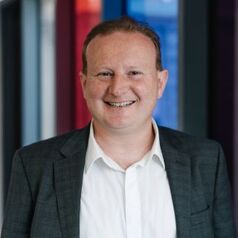
David Littlewood
Senior Lecturer in Strategic Management, University of Sheffield
I am a Senior Lecturer at the University of Sheffield working in the Management School. I research issues of business and society and particularly social innovation and entrepreneurship in Africa.
Less ![]()
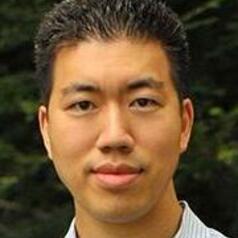
David Liu
Professor of the Natural Sciences at Harvard University, Harvard University
David R. Liu is the Richard Merkin Professor and director of the Merkin Institute of Transformative Technologies in Healthcare, vice-chair of the faculty at the Broad Institute of MIT and Harvard, the Thomas Dudley Cabot Professor of the Natural Sciences at Harvard University, and a Howard Hughes Medical Institute (HHMI) investigator. Liu’s research integrates chemistry and evolution to illuminate biology and enable next-generation therapeutics. His major research interests include the engineering, evolution, and in vivo delivery of genome editing proteins such as base editors to study and treat genetic diseases; the evolution of proteins with novel therapeutic potential using phage-assisted continuous evolution (PACE); and the discovery of bioactive synthetic small molecules and synthetic polymers using DNA-templated organic synthesis and DNA-encoded libraries. Base editing—the first general method to perform precision gene editing without double-stranded breaks, and a Science 2017 Breakthrough of the Year finalist—as well as prime editing, PACE, and DNA-templated synthesis are four examples of technologies pioneered in his laboratory. These technologies are used by thousands of laboratories around the world and have enabled the study and potential treatment of many genetic diseases.
Liu graduated first in his class at Harvard College in 1994. During his doctoral research at UC Berkeley, Liu initiated the first general effort to expand the genetic code in living cells. He earned his PhD in 1999 and became assistant professor of chemistry and chemical biology at Harvard University in the same year. He was promoted to associate professor in 2003 and to full professor in 2005. Liu became a Howard Hughes Medical Institute investigator in 2005 and joined the JASONs, academic science advisors to the U.S. government, in 2009. In 2016 he became a Core Institute Member and Vice-Chair of the Faculty at the Broad Institute of MIT and Harvard, and Director of the Chemical Biology and Therapeutics Science Program.
Liu has been elected to the U.S. National Academy of Sciences, the U.S. National Academy of Medicine, and the American Association for the Advancement of Science. He is the 2022 King Faisal Prize Laureate in Medicine. He has earned several University-wide distinctions for teaching at Harvard, including the Joseph R. Levenson Memorial Teaching Prize, the Roslyn Abramson Award, and a Harvard College Professorship. Liu has published more than 220 papers and is the inventor on more than 85 issued U.S. patents. His research accomplishments have earned distinctions including the Ronald Breslow Award for Biomimetic Chemistry, the American Chemical Society David Perlman Award, ACS Chemical Biology Award, the American Chemical Society Pure Chemistry Award, the Arthur Cope Young Scholar Award, the NIH Marshall Nirenberg Lecturer, and awards from the Sloan Foundation, Beckman Foundation, NSF CAREER Program, and Searle Scholars Program. In 2016 and 2020 he was named one of the Top 20 Translational Researchers in the world by Nature Biotechnology, and was named one of Nature’s 10 researchers in world and to the Foreign Policy Leading Global Thinkers in 2017. He is the founder or co-founder of several biotechnology and therapeutics companies, including Beam Therapeutics, Prime Medicine, Editas Medicine, Pairwise Plants, Exo Therapeutics, Chroma Medicine, and Resonance Medicine.
Less ![]()
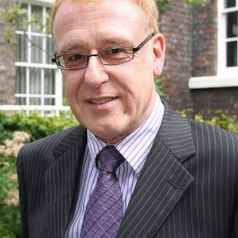
David Lowe
Principal Lecturer in Law, Liverpool John Moores University
Having had an enjoyable 27 year police career I have now established a new career in academia where I am a principal lecturer at Liverpool John Moores University's Law School teaching and researching terrorism, security, policing, human rights, criminal law and public law. I have a number of books, journal articles and book chapters on terrorism and policing already published, with other research due to be published soon.
As a result of my research and experience in policing, my services to provide expert commentary for local, national and international media is frequently requested. I have appeared on the BBC radio and TV, Sky news, Al Jazeera, France 24, DW Germany, Russia Today, TRT World (Turkey) and Al Arabyia television LBC and Voice of Russia. I have also provided commentary for UK's press including The Guardian and Daily Mirror as well as Slovakia's Pravda Austria's Der Presse and the US's Washington Post, Wall Street Journal and New York Times amongst others. These have been on issues on terrorism, security, human rights and European Arrest Warrants. I regularly review the newspapers for City Talk.
I am currently an external examiner at Teeside University on their police foundation programmes, Coventry University's undergraduate law degree programme and the University of Central Lancashire's MSc programme on terrorism studies.
I am a member of the Liverpool Law Society's Criminal Practice Committee and an academic fellow of the Inner Temple.
I am currently assisting Merseyside Police's Prevent team on issues related to radicalisation to extremist causes.
Less ![]()
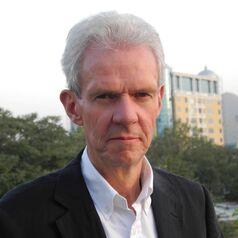
David Loyn
Senior Visiting Research Fellow, Department of War Studies, King's College London
David Loyn is an author, journalist and analyst who specialises in Afghanistan, South Asia and imperial history. He is currently on an advisory panel to the FCDO on South Asia policy, and co-convenor of a mid-career course for diplomats for the FCDO International Academy on South Asia and Afghanistan. He writes regularly on Afghanistan for the Spectator.
As a BBC correspondent for more than three decades, David won awards in both Radio and Television reporting, including Journalist of the Year from the Royal Television Society for his reporting of the Kosovo conflict in 1998. His last posting as correspondent was in Afghanistan, a country he has been visiting since 1994, including several trips during Taliban control.
From 2017-2018 David worked as Strategic Communications adviser in the office of Afghan President Ashraf Ghani. He holds an MA degree in Modern History from Oxford University, and is a qualified barrister. He joined the War Studies Department at King’s in September 2016.
David is a board member of Peace Direct, and an Associate of the Imperial War Museum.
Areas of expertise
• Afghanistan and South Asia
• Strategic communications
• History of war reporting
• International development
• Intervention doctrine
• Imperial history
Publications
Books
• The Long War—the Inside Story of America in Afghanistan since 9/11; (St Martin’s Press, New York 2021)
• Butcher and Bolt – Two Hundred Years of Foreign Engagement in Afghanistan; (London: Hutchinson, 2008)
• Frontline – Reporting from the World’s Deadliest Places; (Michael Joseph, 2005; updated edition
Summersdale, 2011) Shortlisted for the Orwell Prize.
Less ![]()
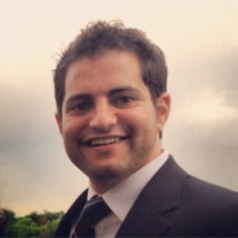
David M. Greenberg
Music psychologist, University of Cambridge
My research examines musical behavior at the intersection of personality, social, and cognitive science. It begins from that standpoint that differences in musical experience are not random, but are rather tied to various psychological and cultural processes. Recently, our work has shown that personality and cognitive styles predict musical preferences and musical ability. We also explore a range of other topics including musical talent and skill in autism, how music is linked to resilience and well-being, and whether music can increase empathy and communication skills.
Less ![]()
- Market Data




















